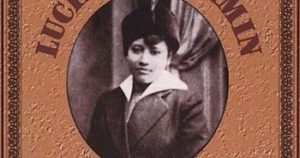
Lucille Hegamin
Lucille Hegamin was born on this date in 1897. She was a Black blues singer.
Hegamin was born in Macon, Georgia, hence her first stage nickname, the Georgia Peach. Her birth name was Lucille Nelson; she also went by Fanny Baker. Although she had little vocal training, she began working the tent show circuit in the South in her mid-teens. In 1914, she married piano player Bill Hegamin. The duo eventually wound up in Chicago, where Hegamin sang with jazz pianists Jelly Roll Morton and Tony Jackson.
She and her husband moved to Los Angeles before settling in New York in 1919. In New York, she sang in cabarets and nightclubs and was signed by Arto Records in 1920. Her follow-up to "The Jazz Me Blues" was "Arkansas Blues," a song that solidified her reputation as one of the more popular Black singers of the era.
After Hegamin's contract with Arto expired, she signed with Cameo and became known as the Cameo Girl. Lucille Hegamin was the second Black vaudeville blues singer to record in 1920. She recorded "Everybody's Blues" for Arto Records in November of that year, just a few months after Mamie Smith had recorded "Crazy Blues," the first blues song to appear on the disc.
Although not a pure blues singer in the tradition of Bessie Smith, Hegamin seemed as comfortable singing the blues as she was singing the pop and vaudeville hits of the day. Light-skinned and attractive and born with a cool, well-rounded voice, Hegamin became one of the biggest names in blues circles in the early 1920s. Her signature song, "He May Be Your Man, But He Comes to See Me Sometimes," is considered one of the era's most memorable numbers. Hegamin recorded 40 songs with Cameo before she slid from the scene in the 1930s.
In the early 1960s, Hegamin returned to recording, thanks to the support and urging of fellow classic blues singer Victoria Spivey. Hegamin sang songs for Spivey's self-named label and the Prestige-Bluesville label. She died on March 1, 1970.
Nothing But the Blues: The Music and the Musicians
Edited by Lawrence Cohn
Copyright 1993 Abbeville Publishing Group, New York
ISBN 1-55859-271-7